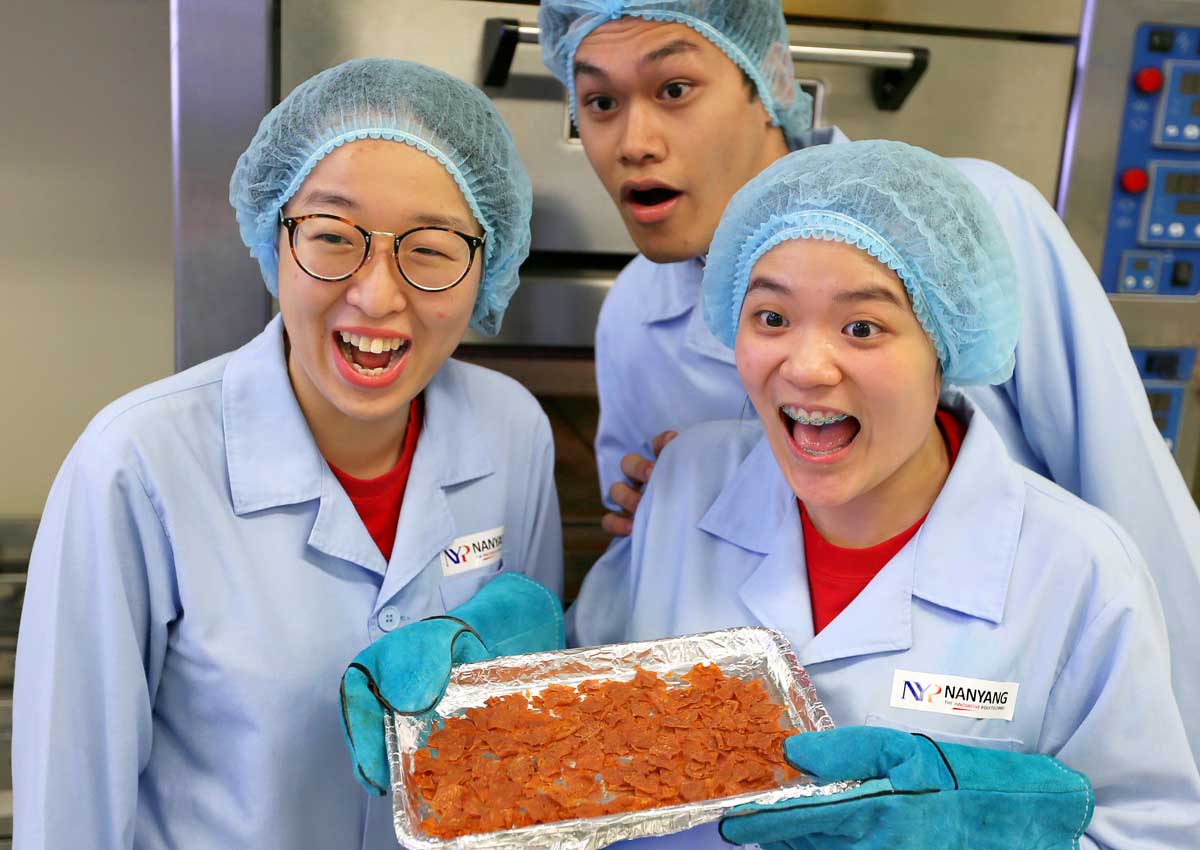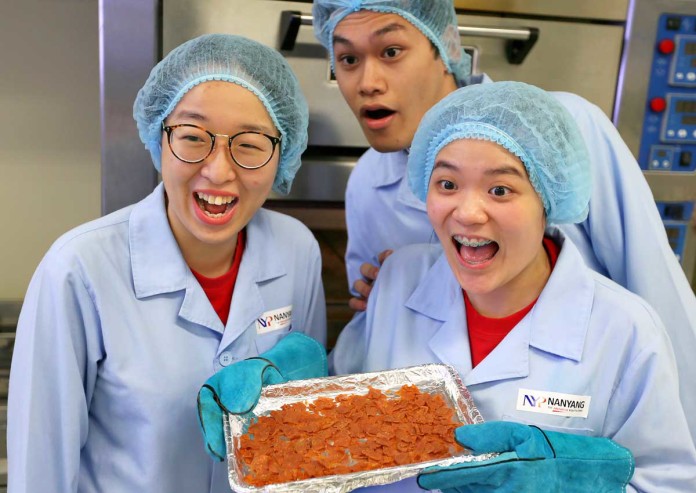Grabbing that extra slice of bak kwa during Chinese New Year may be less of a guilt trip in a few years’ time.
The traditional barbecued pork snack is going the healthy route, thanks to a team of Nanyang Polytechnic students.
And popular retailer Lim Chee Guan is taking the bite.
The NYP team devised a way to harness soya bean residue – a by-product that would normally be thrown away – to turn out a crispier version of bak kwa that is also packed with dietary fibre.
About 30,000kg of soya bean residue – called okara – is rendered useless and discarded here each day.
Scientists have been finding ways to recycle it – okara has been turned into a solution to grow yeast by a team at Nanyang Technological University, and converted into mock meat floss by the Agri-Food and Veterinary Authority of Singapore.
The students are the latest to tap into the rich source of dietary fibre.
To create a healthier alternative to bak kwa, a six-month project was started with the support of manufacturer Lim Chee Guan Food Industries to incorporate okara into the company’s secret bak kwa recipe.
To get the best taste and colour, the students ran almost 100 trials with three ovens to test for the optimal temperature and baking time. The team’s method involves baking the meat, which is healthier than cooking it on the grill. They also swopped pork for chicken so more people can enjoy the snack.
Ms Danice Peh, 19, and Ms Lai Xue Er, 21, food science and nutrition students, members of the team of four, would spend hours in the laboratory each day.
“Lots of people started calling us the bak kwa girls because we were always in the lab baking bak kwa,” said Ms Lai with a laugh.
The team stumbled upon the new version by accident, when they rolled the mix too thinly and cooked it too long. The result was thin crispy strips of bak kwa.
Said Mr Muhammad Haziq Md Hasan, 20, a business management student: “I was scraping them off the tray to throw them away but decided to taste some and realised it was really nice.”
It was so tasty that he and fellow business management student Iann Prasetya Hussi, 19, who were in charge of marketing the product, convinced the company to consider a crispy version instead.
A spokesman for Lim Chee Guan Food Industries said that as customers are becoming more health- conscious, it has been wanting to develop a bak kwa snack with improved nutritional value, one that can be consumed every day and not just during Chinese New Year.
The team is in talks with the firm to mass produce their bak kwa.
Ms Peh and Ms Lai have been offered part-time jobs during their school break this month to further modify the recipe to make it even healthier. This includes increasing the fibre content and reducing the salt and sugar in the marinade.
They will also help to come up with a manufacturing process.
Ms Lina Tan, the students’ co-supervisor and senior lecturer of the food science and nutrition course at NYP, said she hopes that the healthier bak kwa will hit the market in one to two years.
Tests by an external laboratory have found that the students’ bak kwa has around 4g of fibre per 100g, which means it can be marketed as a “source of dietary fibre”.
Quek Jing Yi, 18, also a food science and nutrition student at NYP, said he was initially sceptical about his classmates’ creation, expecting it to taste bland. “It turned out to be quite flavourful. It does not taste like the traditional bak kwa but there is still that familiar taste.”
“I liked that it was crispy. You can eat it like potato chips.”

This article was first published on Dec 17, 2016.
Get a copy of The Straits Times or go to straitstimes.com for more stories.







